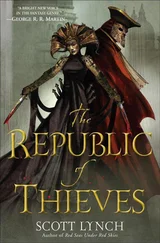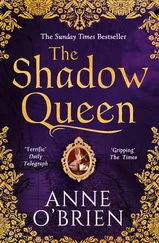Zee could not be the best singer because, while he had a nice voice, he was no match for the still-soaring soprano of wee little Boyd Brentwaithe. He could not be the best at cricket because he thought cricket was dull, or at polo because he wasn't a total twit, or at debate because he preferred it when everyone just got along. But if he worked, if he practiced and trained, he could be the very best football player, and that- at F &E, like at any other British school-was truly something. There he had the lineage; his parents may not have been peers of the realm, but his mother was the University of Exeter cross-country champion, and his dad had played basketball and baseball at the University of Minnesota. Zee had speed, he had talent, he had mental and physical agility, and he had drive-plus he'd been kicking around a football ever since Grandmother Winter gave him his first one when he was three.
And Zee was the best. There was no denying it. There were rumors they were going to let him play for the senior team next year, a year early. He was the best, his teammates revered him, and he was something.
But no matter what, he was never as happy as when he was in Exeter, playing football all day and spending his evenings with Grandmother Winter. The boys there came from all over the West Country, and they were just people; they went bowling and wore T-shirts and didn't care about which fork to use, and they were Irish and Asian and African and sometimes all three.
And they were good. Much better than the F &E team, even the much-lauded senior team. Zee was just average on the club team, and in Exeter being average was just fine with him.
All of that was perhaps why Zee was even more nervous to hear that Samantha Golton would be in Exeter for July. Samantha was a part of the world of F &E, where all the boys carried their somethings around with them like medals of honor. Exeter had cows, and he had to carry nothing with him at all. He could just wear blue jeans and play football and be with Grandmother Winter, who made excellent lemonade and lots of cake, who took him to museums and bought him ice cream and laughed at his jokes, and who seemed to think he was really something.
But nothing that summer was to be as expected.
One night, a week before he was to leave, his mother sat him down with a sort of ominous-sounding "I want to talk to you about this summer." Zee's first thought was that she had found out about Samantha and wanted to give him love advice.
"Um, okay."
"Your father's travel schedule is light this year," she continued, "and he's got some holiday. I thought we might come out to Exeter in July and visit with you and Gran, if you don't mind."
"Really?" Zee said.
"Yes. It's been a while since I've visited my mother. We'll just come for two weeks or so."
"Okay," Zee said. That was fine, especially if it would be just for a couple weeks. And it was much better than love advice.
"And your dad thought we might invite Aunt Tara and Uncle Mike and Charlotte up for August, too. They've been talking about coming over."
"To Exeter?"
"No. London. We'd come back."
"But…"
"Wouldn't you like to see your cousin Charlotte?"
Zee bit his lip. He barely knew his cousin Charlotte. They had gone to visit when he was six; he had dim memories of kicking around a football with her at a time when he'd never heard the word soccer, and he had thought she was playing a weird joke on him. It's not that he actively didn't want to see his cousin Charlotte; his feelings on the matter were entirely neutral. But August was not for London, no matter about Samantha Golton. August was for Exeter and lemonade and freshly baked cake and the sort of floury, sort of talcum powdery, sort of lotiony smell of Grandmother Winter's home.
Grandmother Winter almost did not invite her grandson to stay with her that summer, for she knew that during the summer she would die.
Once in a while Grandmother Winter knew things. Some of those things were small things. She always knew where Lolita Thornbridge had left her keys. She always knew the specials at the Flying Horse and when they were out of pies. And she always knew, every year, what her daughter was getting her for Christmas. (Though every year she pretended to be surprised. Because it's not nice to take the fun out of life for people.)
And some of the things were big. She knew when she left home when she was twenty that she would never go back. She knew when she met Zachariah Winter in Liverpool one rainy day that she would marry him. She knew when she was pregnant that she would have a girl and then no other children. She knew when her daughter was pregnant that she would have a boy, that that boy would be named Zachary, and that he would be the most precious thing on Earth to his grandmother.
And one day in April, while she was watering her rose bushes, she was struck with the knowledge that she was going to die that summer. Her death would be quiet and painless, a good death as far as deaths go. But it would most certainly be a death.
Well.
Once the initial shock had worn off, Grandmother Winter found that she was not upset about dying- she had lived quite a good number of years, thank you. In fact, she had been alive all of her life, but she had never been dead, and it seemed an interesting thing to be. And her husband had been dead for ten years. It would be nice to be in the same realm of existence as him again.
Of course, she regretted having to leave her daughter. She regretted the sorrow she would cause. And she regretted that she would not be with her grandson as he grew older-yet she also knew that somehow she would never really go away from him. Whatever death held, she would find a way to watch over him. Grandmother Winter had a way of getting what she wanted when she set her mind to something.
The one problem with the whole scenario was that she did not want her grandson to have to see her die. But every time she tried to come up with an excuse for why she would not be able to host him this summer, her brain came up empty. And every time she was ready to reach for the phone to call the Millers, something distracted her. Somehow she knew that no matter what she did, her grandson would be there with her when she died-that this, like her death itself, was unavoidable.
So he would come. They would have one last summer together. She would not tell him how it would end, because there was no point in his being sad for one more second than he had to be. He would come, and she would give him the best summer she could, she would give him a lifetime of grandmotherness, and when the end did come, she would make sure he knew that she would always be there.
For Grandmother Winter sensed something inside Zee. Something that was all closed up, hard and tight, when she saw him in London, something that unfurled when he was there in Exeter over the summer. She had tried to talk to his mother about it, but Suzy did not see it, in the way that sometimes parents cannot see what is in front of them. "Of course he's more relaxed over the summer," she had said. "It's summer!"
So now Zee would not have his summers anymore, and whatever it was that made him expand, she would simply have to help him find it on his own.
Grandmother Winter's Last Words
WHEN ZEE ARRIVED IN EXETER ON JUNE 8, HE found that his grandmother had gone mad.
Not clinically mad. Not mad like talking-to-people-who-aren't-there mad or forgetting-to-wear-trousers mad or hello-I'm-the-Queen-how-do-you-do mad; but rather, mad in the way that a person can be completely normal all of your life, and then one day you discover she's completely gone off her rocker.
For when Zee arrived at Grandmother Winter's house -he had taken an early train to surprise her-he found her baking. This was not unusual in itself; grandmothers bake, and Grandmother Winter was no exception. But usually she baked a cake a week, on Sundays, and Zee would have a slice a night and count the progression of the week by the diminishing eighths of the cake round. Zee never let her throw the cakes away when they were stale -Friday's wedge might be dry and old, but it was still Friday's wedge, the crumbly vestiges of the week, and it contained an implicit promise that on Sunday there would be fresh, whole cake again.
Читать дальше












